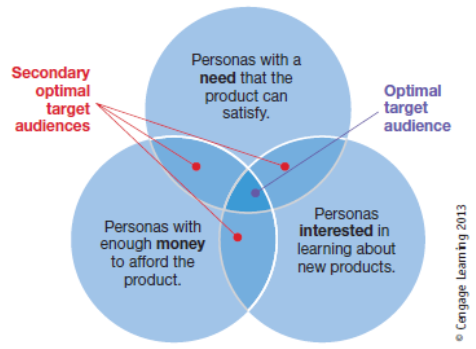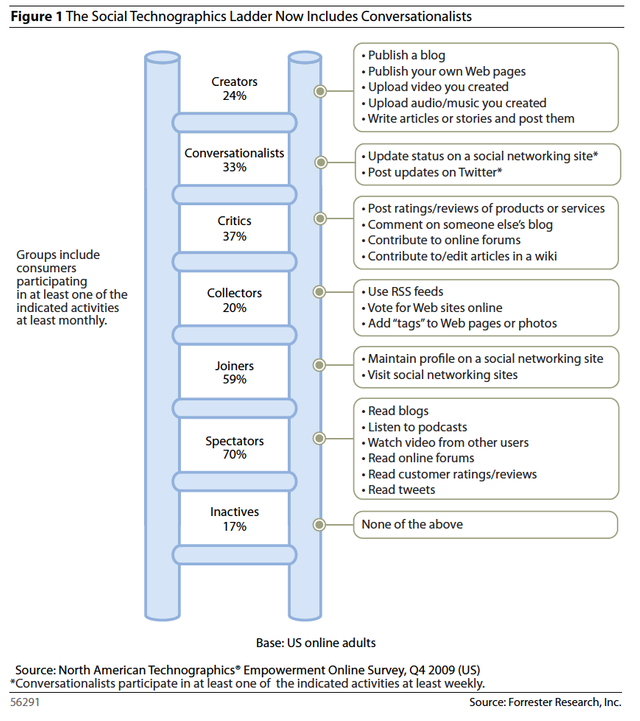Social media marketing - finding your audience
Much like any other form of marketing, in social media marketing one must be able define the major bases for segmentation in order to split the market up into smaller, more specific groups.

Segmenting the market
There are five main bases of segmentation, these are as follows:
Geographic
Based simply on geographic location (region, country, etc). In the social media marketing context this is uncovered using GPS technology and real time and location information through electronic devices.
Demographic
Based on the age, gender and occupation of consumers. Social media marketing to this segment is based on the particular social media zones they are likely to be found in.
Psychographic
Based on a consumers lifestyle - their personality, how they think, their lifestyle, if they are introverted/extraverted. Social media marketing follows these consumers social footprints (these are made when a user occupies a digital space).
Benefit sought
Based on the benefit a consumer seeks from particular products. Social media marketers look at this in a social community context.
Behavioural
Debatably the most important as it is based on a consumers behaviour, which can than be translated into purchases. Social media marketing looks at whether a consumer in this field is a light or heavy user of a particular social media platform.

Developing the optimal target audience
A target audience (or target market) is a group of consumers a company has decided to organise its marketing strategies to reach with their message.
Personas simplify the audience into groups based on:
- Need for the product
- Ability to pay
- Interest in new things

As seen in the above diagram, the optimal target audience is one that all three of these personas apply to. The secondary optimal target market is then established as the consumers who two of the personas apply to.
Social technographics ladder
This framework is outlined using the following diagram:

As it is quite clear the majority of online users are spectators, with a whopping 70% taking a backseat and simply observing content that other users are sharing. Aside from spectators, a very large number of people are still found to be active online in many other ways from creators, to conversationalists, to critics, to collectors and to joiners. With only a small 17% portion of people being totally inactive on social media, these people are also quite generally at the older end of the spectrum.

Your post is very useful, I hope I will continue to be able to communicate with you through this community and we will share information, I have business information that is very tempting for you, please check https://steemit.com/business/@ponpase/expo-2017-join-now-2017810t214715198z